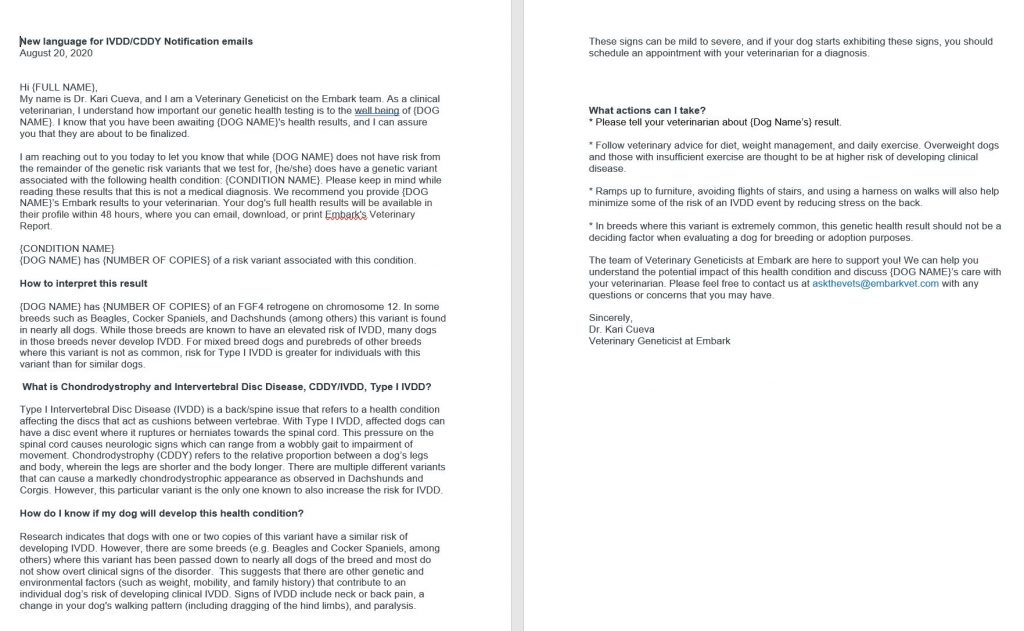This is a genetic test that is (in my opinion) a little deceptive. Almost every beagle I have come across, that has been tested, has been positive for this. Some say as many as 99% of the breed will be positive – but I dont see 99% of beagles having back issues and ruptured disks.
There is even evidence that shows that it may be common across most breeds, even though most will be asymptomatic.
The reason it is highlighted is that it is an indicator of a gene that they found commonly in dogs with short legs and long bodies – bassets, corgis, dauschunds and the like. These dogs are said to have an “increased risk of a health condition affecting the discs that act as cushions between vertebrae. Affected dogs can have a disc event where it ruptures or herniates towards the spinal cord and it can cause neurological issues.”
The problem I find with the results of this test are two fold.
- The test does not take into account any environmental factors such as the weight of your dog, how active or fit your dog is, or how often they jump off higher surfaces like couches or beds. An overweight dog is going to be much more likely to have back issues than one that is kept at a healthy weight for his or her body.
- The test does not give any indication of how much increased risk. Is your dog at 0.001% increased risk of having a rupture? Or 4% increased risk? Or 33% increased risk? or 79% increased risk? There is no information about what the increased risk actually is. There is no actual guidelines or information here. Just scary words with nothing to quantify it.
Ruth Darlene Stewart from Aladar Beagles wrote an article about this also – she is a repected AKC judge and long time beagle breeder.
It seems that maybe this gene doesn’t activate or affect beagles in the same way that it does other breeds. Maybe it is because we are actually not a long bodied, short legged breed. I dont know. However, I want you to rest at ease and not panic about it if you see it on your genetic testing result.
Below is a copy of the amended letter from Embark to families about IVDD to try and better explain and put everyone’s minds at ease. Please feel free to read it.

